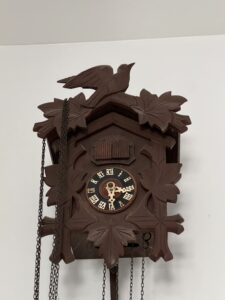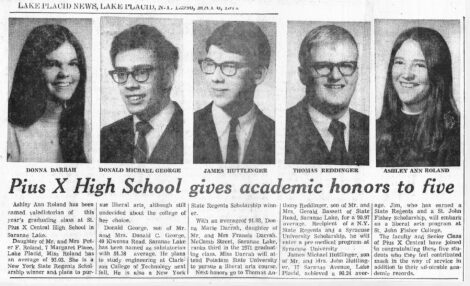Gruzz speak
I can’t tell you the day, the month or even the year that it happened. But I can tell you the moment. Standing in front of an 8th-grade class, teaching a lesson on writing, I said, “This paragraph is pretty good, but we need to tweak it a bit.”
Some soft titters came from the back of the room, which, honestly, wasn’t unusual for middle school.
So, I continued, “So, who can offer some tweaks for me?”
A couple of students put their heads on the desk, their shoulders shaking.
“John, can you change anything, or do I need to tweak…”
Uproarious laughter cut off my sentence. “Mrs. Peer is a tweaker!” interspersed with their giggles. Seeing my confusion, the students explained that to “tweak” was to have an overly emotional response to something small. In their world, it no longer meant to make a slight adjustment.
And that was the moment when I knew I was no longer young and cool; the moment I no longer spoke the kids’ language. While I avoided the word “tweak” for years, at least I didn’t do the creepy adult thing, where I adopted their slang to be cool.
I also wasn’t dumb enough to slide into the Valley Girl slang of my youth. Somehow, a teacher spouting, “Dude and dudettes, it was, like, a totally tubular and most bodacious day,” doesn’t exactly inspire confidence. Besides, I no longer had the big hair and blue eyeshadow necessary to be authentic.
Language is wonderfully dynamic and changes rapidly, particularly now in the age of social media. Current middle schoolers have almost a complete dictionary of alternative phrases, some of which have a clear origin. For instance, “Six seven” is a reference to the height of NBA player, LaMelo Ball, who is 6’7″. Well, what does it mean? Absolutely nothing. It’s just nonsense like skibiddi toilet (which is so last year). Kids just joyfully shout this silliness. If these phrases have no meaning, why do they say them? To annoy adults and make their friends laugh. It’s the middle school way.
Currently, an adult might hear a baffling conversation like:
Boy 1: “Cameron is bussin’. No cap, he ate that math test.”
Boy 2: “Cap, you’re delulu. That test was Ohio.
Boy 1: “Yeet. He left no crumbs.”
The translation:
“Cameron is awesome. No lie, he did great on that math test.”
“Liar. You’re crazy. That test was weirdly hard.”
“YES! He scored 100%.”
In their vocabulary, we are no longer geezers, we are the gruzz. Sometimes dismissed, sometimes resented, sometimes revered. What those whipper snappers don’t realize is that they don’t have all the rizz. With our life experiences, we could have our own age-based gruzz slang. The dictionary entries might look like this:
Safe and seek — The search to find that object that you put in a safe place, only now you can’t remember where that was. Example: I played “safe and seek” for an hour this morning, looking for my keys.
Prepped — All ready to go after an unpleasant experience. Origin: colonoscopy prep. Example: After listening to that guy bragging nonstop, I was prepped.
Smokin’ Night Vibes — Hot flashes. Example: The Smokin’ Night Vibes left all my bedding on the floor. (Sounds more intriguing than reality, doesn’t it?)
Blurposting — posting unflattering, unedited, blurry pictures of friends and relatives on social media. Example: If I blurpost their pictures on Facebook, I know my kids will call me.
Naptastic — being revitalized after a nap. Example: After snoring in the recliner for an hour, Bill woke up and felt naptastic.
Does gruzz speak have a future? It’s hard to say. Most of us aren’t watching and repeating endless TikTok reels, so this language evolution will take time. In a month or so, we’ll just have to search the terms on “The Google” and see if they’ve taken off.




